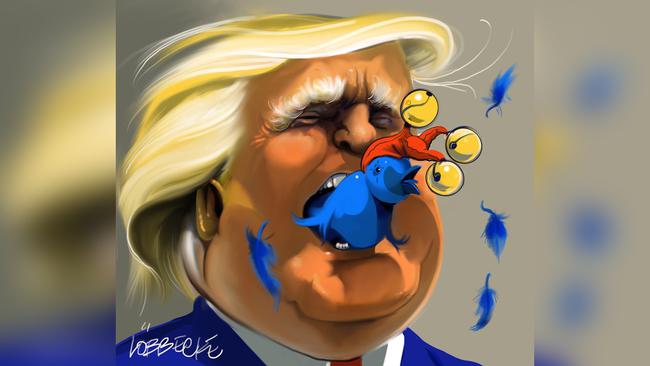Angry Democrats play into Trump’s tweeting hands

Don’t expect me to join the quivering faux outrage over his latest un-bon mot. Two words, “go back”, in the middle of his 121-word tweet storm apparently directed at the radical Democratic House clique of Alexandria Ocasio-Cortez, Rashida Tlaib, Ilhan Omar and Ayanna Pressley don’t strike me as the racist trope his partisan enemies insist. Yes, they echo bigoted words heard many times by foreign tourists and immigrants. Of course there’s also the countervailing trope. Decades ago on a street in Istanbul a man came up to me and shouted, “Yankee go home and take me with you.” And then he laughed.
It must have been a dilemma for Trump in deciding to step into what was purely an intramural fight among Democrats. He shoved himself into the picture when he didn’t need to. But then he always needs to.
Americans are free to interpret his comments however they wish. But if “go back” means what his critics say, then how do three other words in the same admittedly idiotic tweet storm advising them “then come back” (after ministering to the unhappy countries from which they or their parents originated) fit the trope?
They don’t. But like those movie ads that truncate the meaning of reviewer quotes beyond all recognition, the media long ago awarded itself a privilege of putting words in Trump’s mouth the way it would few other politicians.
Yet don’t we still get the impression Trump is actually directing all this? I urged early and often that he stop tweeting. But I must admit there is something compelling and finally instructive about the apparent ease with which he elicits ritualised behaviour from much of the media.
An unexpected revelation of the Trump era has been just how nonplussed and ready to go all herdlike our pundit class is when confronted (for once) with something genuinely interesting, novel and antic to analyse — which the Trump phenomenon surely is. I repeat this point only because it seems essential. Trump was the most known person ever elected to the presidency. His very unsuitability — by the standards the American people have traditionally applied when picking presidents — was clearly somehow part of the message voters were sending.
That is, Trump’s demerits and vulgarities should be a starting place for analysis and insightful political bloviation, not the ending place. Yet for many media types they remain the ending place. He’s unfit for office! He’s a flawed character! They delineate these flaws as if they discovered them, as if contorting their faces into the right shade of disapproval will make 63 million Americans repent of their decision and accept a return to the status quo ante.
Of course the explanation is partly economic. Many bloggers, columnists and TV pundits who have nothing to say must still say it to remain employed. Yet pundits do shape the national dialogue, and as much by what they fail to perceive, which may be why millions of Americans may feel the need to pull the lever once more with emphasis for Trump next year. The purpose of politics, as Trump’s election continues to remind us, is not to realise the impassioned ideological dreams that draw some to the profession, or the desire to get paid off by special interests that many settle for. Fundamentally, the purpose of politics is to produce a recurring consent from the governed for the accommodations with reality that our leaders are driven to make on our behalf, including the reality of globalisation.
As Trump was vamping his way to the presidency, this column reasoned that the country could afford — and might even benefit from — four years off with a reality-TV jester expressing half the country’s discontent with globalisation as President. The federal government would still exist. It would still do its job and respond to matters that arise. Indeed, the country has largely enjoyed its experience (so far) under Trump judging from the employment and consumer confidence numbers.
Yet an inconsistency seems worth observing. The Democrats who would challenge him uniformly insist on two points: Isn’t it awful that the American people could elect Donald Trump President? And let’s vastly expand the powers and mission of the federal government for the next time it falls into the hands of a president we revile as much as Trump (or any Republican, really).
I don’t think the fundamental incontinence here means a Democrat can’t be elected. It just means voters are likely to provide a GOP congress to stop her or him from doing anything.
The Wall Street Journal



Countless Trump supporters have approached me and said with a sigh that they wish the President would stop tweeting. I’ve never heard a Democrat express a wish that Trump would stop tweeting.